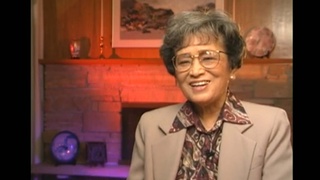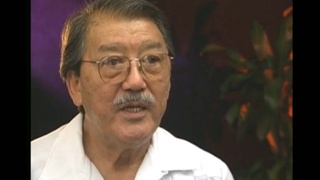Interviews
JACL reaction to the idea of a commission
JACL, as you know, was split. The real opposition happened to be from [the] Seattle group, and they said, no, here we go again. They said, you people are copping out. But we didn’t think that we were copping out, we were just becoming very realistic. Because in politics, you have to be realistic, you just cannot have some idea, and then expect that to go all the way through. We thought that our going the commission route was the correct way to do it and it was up to John Tateishi now to present that to the national board, which he did at the spring national board meeting. And as we expected, a large contingent from Seattle was very much against it. In fact, some of them left JACL.
Date: July 1-2, 1998
Location: California, US
Interviewer: Mitchell Maki, Darcie Iki
Contributed by: Watase Media Arts Center, Japanese American National Museum









